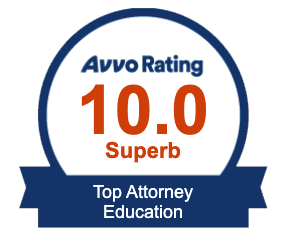How many parents of children with special needs have complained to their child’s teachers, Principal, Superintendent, and other school officials that their child has been and is being bullied? Too many. A majority of calls I receive from parents of children with special needs involve, in part, a complaint that their children have been bullied. School administrators and teachers often look the other way or ignore the bullying of children with special needs It is not surprising that so many parents are frustrated with school officials when little or nothing is done to diminish and eliminate bullying of their children. Can parents take steps to prevent or stop bullying of their children in public school, and if so, how?
Bullying is typical perceived a physical aggression toward a student but it can often be insults, teasing, social media attacks and other forms of non-physical aggression. Bullying remains pervasive in the public school system. Approximately 15%-30% of all students are bullies or victims of bullies. About 2/3’s of all students believe that schools respond poorly to bullying. About 25% of all teachers see nothing wrong with bullying and only about 4% intervene in cases of bullying. And special education students make up the bulk of children that are victims of bullying. These statistics are pretty bleak.
Unfortunately courts have not been responsive to parents that complaint their children are bullied under the due process clause of the U.S. Constitution because schools have o affirmative obligation to protect students. See e.g. Veronica Sch. dist. 47J v. Acton, 515 U.S. 646, 655 (1995); Morrow v. Balaski, 719 F.3d 160 (3d Cir.)(en banc)(2013). But the courts have ruled in a number of cases that claims against schools for failure to protect against peer to peer harassment can be brought if the school system had knowledge of the abuse or harassment and was deliberately indifferent to it. See Gebser v. Lago Vita Indep. Sch. Dist., 524 U.S. 274 (1998); Davis v. Monroe County Bd. of Educ., 526 U.S. 629 (1999). Based upon these cases, I often advise parents to write a letter to the Principal and Superintendent of the school system when they learn that their children have been physically bullied or abused. In this letter, the parent should set forth, in detail if possible, the dates of the occurrences of bullying, the names(s) of students involved, and that the bullying continues. In this letter the parents should cite Gebser to put the school system on notice that their children have been bullied and that the school system has done nothing or little to protect their children from abuse. In other words unless the parents can show that the school system has been on actual notice of the harassment, bullying and abuse and has been “deliberately indifferent” to it, then the parents have little or no recourse against the school system.
There is also another legal theory under the IDEA that allow parents of children with special needs to seek relief when bullying and harassment of their children occurs. See Shore Regional High School Board of Education v. P.S., 381 F.3d 194, 201-02 (3d Cir. 2004). This case stands for the principle that a bullying of student with special needs may result in a denial of a free appropriate public education under the IDEA. Under this theory, a parent can argue that her child is being denied a free appropriate public education because of the bullying and should be transferred to another school, for example, or provided a safety plan to prevent further bullying or receive compensatory education because of the deniasl of FAPE. As yet, this theory has not been widely accepted by the courts but it may in the future. Parents should utilize any and all theories and claims against school system when bullying of their children is pervasive, harmful, continuous and the school system has been deliberately indifferent to it. No doubt, unaddressed bullying of children with special needs has resulted in substantial academic and emotional harm to these children and in some cases led parents to withdraw their children from the public school system. This must stop. For those parents that are able to assert legal claims against school systems for bullying of their children with disabilities then systematic positive change for all students that are bullied in that school system can occur.
I would suggest that parents that have questions or comments about the subject of bullying of their children with special needs to contact a special education attorney for advise on this matter.

